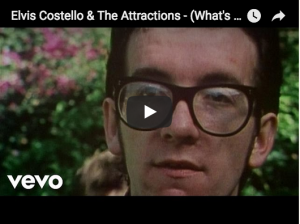If you are a human being who spends time on the Internet, there’s a good chance you’ve seen this May 2012 video documenting Isaac’s marriage proposal to his now-wife Amy. If you have not seen it, stop reading and watch it right now.
*
*
*
There. Now don’t you want to marry – or at least form a life-long platonic bond with – every single person who was part of that?
Epic Marriage Proposal Youtube Videos (there are many more that you can watch; this is just arguably the most fantastic) are metamodern because they take a moment that is already special between two regular, everyday people and turn it into something over-the-top magical by bringing epic performance and production values together with the enthusiasm and supportive affection of the other regular, everyday people who are part of the couple’s life. In the case of this particular proposal, each participant/performer gets a chance to show off their own particular brand of awesomeness along with their excitement about the connection between Amy and Isaac.
For comparison, a public, big-production marriage proposal that was modernist might be just as “epic” as this metamodern event, but the epicness would rely on power elements from outside of the couple’s community – for example: a hired sky-writer, or a sports-event arena announcement, or a professional fireworks display, etc. If it were postmodern, it might be equally “regular/everyday” but the folksiness we see here would be wrapped in a tone that leaned much more toward cheeky/ironic, with perhaps the actual moment when the man gets on one knee and makes his plea being the only purely earnest expression. The blending together of the epic and the everyday, the juxtaposition of the unabashed expression of simple yet profound emotions with the ironic acknowledgement that there is a degree of absurdity present in everything – marriage included – makes these sort of public marriage proposals stand out as metamodern.
Then there’s the actual video/performance/Youtube aspect of it. This is complicated, but here goes: The participants in these marriage proposals are aware that they are part of a documentation event [we may have just coined this phrase?] and are aware that there is a chance that they will be seen by millions of people on the internet. And yet we can assume that potential-internet-fame is the last thing on their minds while they stage the proposal, and that they have no serious expectation of it. So, for the most part, the intention behind their performance is strictly for the private joy of the people immediately involved. And yet, just the POSSIBILITY – even if it’s largely unconscious – that they might be seen by some large audience of strangers creates a heightened performative “energy” which probably contributes to the very charmingness of the video which, in turn, leads to it, indeed, going viral. This sort of “filmic consciousness” – the sense that even your everyday experiences could be contextualized as a scene in a movie – is an aspect of the metamodern outlook that pervades people’s lives more and more these days.
*****
If you enjoyed this post, check out:



